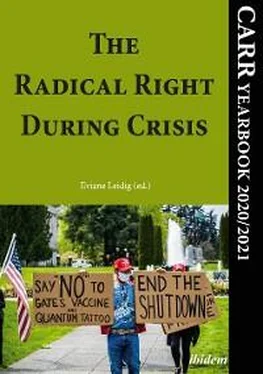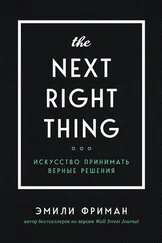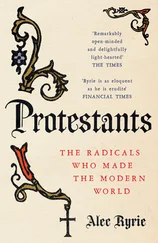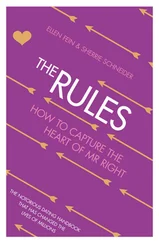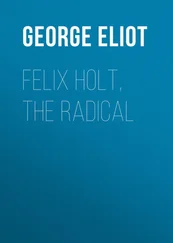And yet between his death and the present day, with a notable peak among the British Idealists the late 19th century, Hegel’s works have been cited frequently by progressive thinkers in Britain and across Europe. 12Benedetto Croce, who developed his neo-Hegelianism in collaboration with Gentile, rejected his friend’s fascist ideology in the 1920s. Then, of course, there was the burgeoning Marxist movement, in which Hegel’s legacy took a radically different form.
The Germanophobic reaction to Idealism were clearly of its time: the French generation that attended Alexandre Kojeve’s lectures on Hegel in the 1930s led the shift to a new existential reading; and Walter Kaufmann’s comprehensive defence of Hegel against Popper’s charges in The Hegel Myth and its Method (1959) marked the changing tide of opinion. 13In Britain, Charles Taylor, Berlin’s student, presented a major study that would shape post-war readings of Hegel and dispel the cruder charges of earlier writers; and by 1989 Francis Fukuyama had made Kojeve’s account the basis of his pronouncement of a post-Cold War “End of History”. Despite these developments, necessarily foreshortened here, the earlier suspicions of Anglophone readers remain noteworthy. The tensions and overlaps between forms of liberal, socialist, and fascist teleology are clear in the legacy of Hegelianism up to the present day.
Dr Henry Mead is a Senior Fellow at CARR and research fellow at the University of Tallinn. Research for this chapter was supported by a European Research Council Starting Grant (TAU17149) “Between the Times: Embattled Temporalities and Political Imagination in Interwar Europe”.
1Karl Popper, The Open Society and Its Enemies, vol II. The High Tide of Prophecy, Hegel, Marx, and the Aftermath (London: Routledge, 1945), 270.
2Bertrand Russell, A History of Western Philosophy (London: George Allen, 1946), 735.
3See Isaiah Berlin, “Historical Inevitability,” (1953), in Liberty, the Collected Essays of Isaiah Berlin, ed. H. Hardy (Oxford: Oxford University Press, 2008).
4Kirk Willis, “The Introduction and Critical Reception of Hegelian Thought in Britain 1830-1900”, Victorian Studies 32 no. 1 (1988): 87-111, 103-4.
5Willis, “Introduction,” 104.
6 Andrew Vincent, “German Philosophy and British Public Policy: Richard Burdon Haldane in Theory and Practice”, Journal of the History of Ideas 68 no. 1 (2007): 157-179.
7Willis, “Introduction”, 8.
8Willis, “Introduction”, 7.
9Leonard Hobhouse, The Metaphysical Theory of the State (London: George Allen, 1918).
10A. James Gregor, Mussolini’s Intellectuals: Fascist Social and Political Thought (Princeton: Princeton University Press, 2005), 86.
11Gregor, Mussolini’s Intellectuals , 114.
12See Lisa Herzog, ed., Hegel’s Thought in Europe: Currents, Crosscurrents and Undercurrents (Basingstoke: Palgrave Macmillan, 2013).
13Walter Kaufmann, From Shakespeare to Existentialism: Studies in Poetry, Religion, and Philosophy (Boston: Beacon Press, 1959), 88-119.
The ‘Silent Majority’: Populist Cliché or Warning?
Aristotle Kallis
In the run-up to the EU referendum in Britain in June 2016, at a time when the Remain vote was apparently enjoying a modest but clear advantage, one of the numerous opinion pollsfocused on public attitudes to immigration and on how this might affect the popular vote. 1When asked to assess immigrants’ contribution to British economy, responses were split evenly between those acknowledging immigrants’ contribution to the economy and those questioning it. Yet very strong affirmative majorities were recorded by the same poll in response to questions about Britain being “overcrowded”, about the need to “significantly” restrict immigration through tighter border controls, to limit migrants’ access to public services, and so on. When interviewees were asked to identify the one issue that could sway their vote in the referendum, respondents singled out immigration by a spectacular margin. Unfortunately, we know too well how this played out.
As the history of opinion polling shows, such social majorities can however be mercurial and hard to gauge. Societies typically host a wide spectrum of views on any given issue and, while it may be relatively easier to talk of “extremes”, the mainstream-as-majority view is often very hard to ascertain or deduce. 2Opinion polls go some way towards capturing the mood of society in a more focused, issue-specific format but they can also be misleading: their results hinge on the way the question is framed, the moment when or the medium through which it is asked, and the group that is sampled. Such parameters may all skew the findings, 3in some cases deliberately or as in most cases unintentionally. Thus, to talk of “social majorities”—or the general will of a population—is very often a wishful projection or and educated guess with a very limited shelf life indeed.
Part of the problem is that social majorities do not always have a voice or a desire to speak loudly enough to be captured by the radar of public mood. Noisy minorities 4can easily skew impressions as much as boisterous leaders claiming that they bespeak the “real” majority view.
Meanwhile, the existence of social taboos about the public expression of particular views in any society may lead to tactical form of public self-censorship—a divergence between the private and publicly expressed views of the individual. ‘Regimes of truth’, Foucault perceptively argued, 5always produce ‘subjugated knowledges’—views and voices that have been de-legitimised and suppressed by a hegemonic discourse seeking to regulate knowledge and therefore public discourse itself.
When Nixon, for example, invoked the “silent majority” as the source of his popular mandate 6and Vice President Agnew spoke of a small “liberal elite” as the exclusive source of “truth” in their contemporary America, 7the elected presidential duo effectively questioned all sorts of orthodoxies about the country’s “mainstream” society. The trope of the “silent majority” lay claim to a social majority that has been ignored, misrepresented by biased media, effectively silenced, and forgotten. It sounds anti-elitist and liberating, mixing lofty principles such as freedom and democracy with the call for radical change. For decades it and its various by-products like the “real people” and so on 8have become the discursive staple of right-wing populists across the world, 9uniting the language of very different figures such as Geert Wilders, Marine Le Penand, more recently, the Tea Party and of course Donald Trump. 10It has also become a favourite electoral stratagem for mainstream political campaigns, such as Vote Leave for the 2016 EU membership referendum in the UK or a series of elections in the 2000s fought by Nicolas Sarkozy as either incumbent or aspiring president.
The populist “silent majority” trope has been repeatedly exposed as a cynical misnomer 11and disparaged by mainstream media and academic research. 12It may be exactly that of course. Populist forces have rarely reached the status of expressing the views of an enduring social majority. It is also easy to mistake noise for public support, although this is an argument that cuts both ways. However, those who take solace in arguing that populists are propelled by angry—and thus vocal—minorities may be drawing a false sense of security from this comforting illusion. Flimsy electoral results cannot be treated as the sole or most authentic expression of public political views. Voter dealignment from mainstream parties is typically, and misleadingly, lagging behind attitudinal shifts with regard to key political and social issues. In other words, majorities can be, and very often are, less politically progressive or socially/culturally conformist than either their voting behaviour or public opinions may suggest or indicate.
Читать дальше
